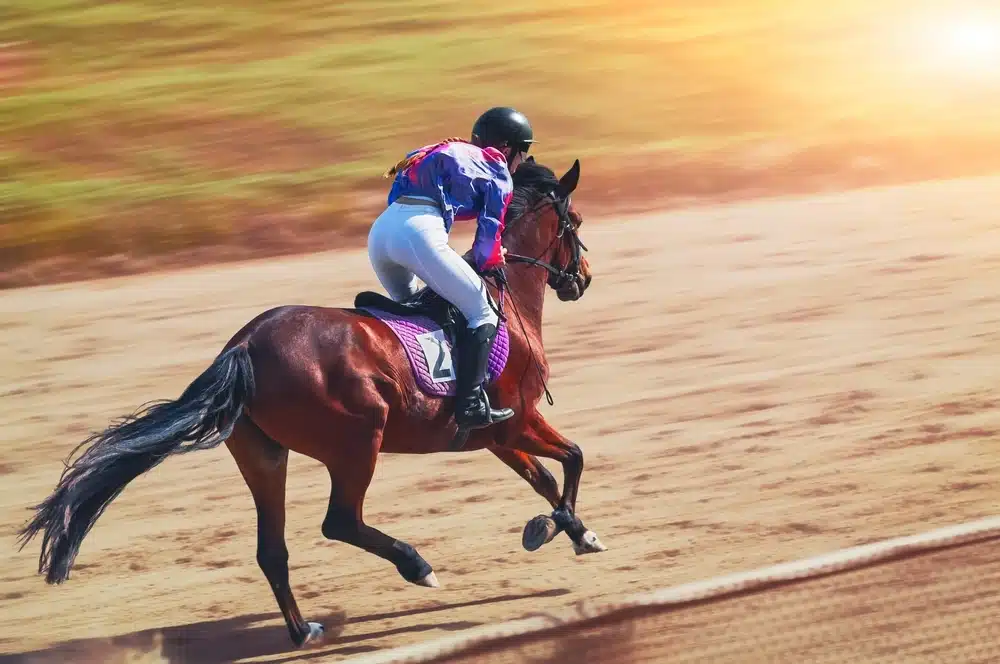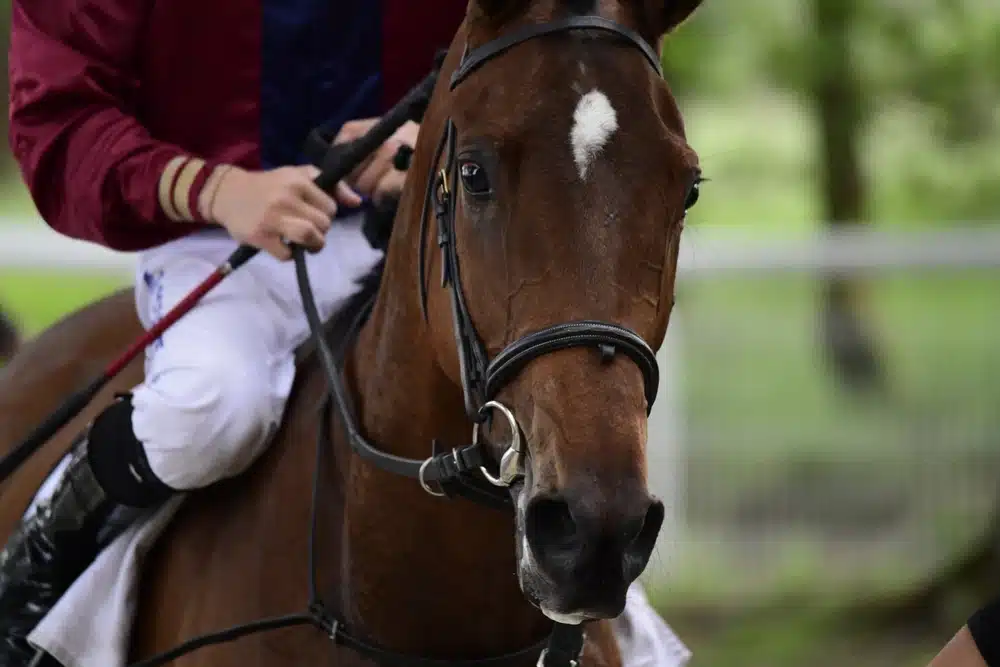
Horse race jockey: A racehorse’s partner on the tracks
Horse racing is a prestigious sport that has brought fame and glory. The average horse racing fan knows the names Man o’ War, Touch of Class, and Zenyatta. Only a few people can name their jockeys, who are arguably their second half and biggest contributor to their victories.
It is no secret that beginner horse racing fans undermine the jockey’s impact in a race. For most of them, the outcome is decided by the horse’s strength, endurance, and speed. The truth is that jockeys make up 50% of their odds to win a horse race, and this guide will show you why you should appreciate them better.
What is a jockey?
The word ‘jockey’ refers to the person riding on the back of a horse. It’s a term coined since the 16th century to refer to anyone horseback riding in general, but it became the term for a professional horse racing rider later up to the present day.
Nowadays, it specifically refers to the horseback rider for a horse running in a race, and it is one of many professions under the ‘equestrian’ umbrella term. The other horseback professions include a show jumper, dressage rider, and eventer. Each of them belongs in a specific industry, like how a jockey is in the horse racing world.
Factors why a jockey is important in horse racing

It’s easy to mistake a jockey’s job to just keep the horses running from the start to the finish line. Horse racing is far more complex than that. The horse racing jockey importance revolves around fulfilling the following factors:
Agency: A horse cannot make competitive decisions
One of the most common beliefs in horse racing is that the horse most likely doesn’t even know it’s in a race. When they run with their fellow racehorses, it’s just their instinct to run, but not compete. The horse needs the jockey to guide its actions, including speeding up to overtake competitors or slowing down to manage stamina.
Temperament: Horses are prone to panicking
For instance, a Thoroughbred is a temperamental animal that does not deal with stressful environments very well. Horses have handlers to lead them between venues, but it’s the jockey who has to stage them in the paddock and move them around the stables. Jockeys are also in charge of making sure they don’t freak out before and during the race to avoid disqualification.
Insight: The jockey is the best source for feedback after a race
The trainer is the person who is in charge of helping a horse reach their potential, but it’s the jockey who is in the best position to learn what it needs. As someone who is on the track with the horse, it is their insights that trainers and caretakers use as reference. You can learn about jockeys’ feedback on their horse after every race from interviews, so fans and bettors can benefit from their insight, too.
Characteristics that a jockey must possess in horse racing
Jockeys undergo years of training and physical conditioning to become professionals in their field. The best of them stand out by excelling in the all horse racing jockey characteristics, giving them a high demand for contracts.
Here is every characteristic that a jockey needs to have and what is considered excellent:
Physically fit
Weight and body build are crucial in horse racing because they can affect the jockey’s survivability on the tracks and the horse’s performance. They need to be within the following metrics to stay in the job:
- Height: 147 cm to 167 cm
- Weight: 49 kg to 56 kg
- Physique: Lean and muscular.
The jockey should also have a strong core for balance, legs to maintain a crouching stance, and strong heart and lungs for endurance. Having strong arms and shoulders is also crucial because controlling the horse requires the jockey to tug firmly at the bridle.
Attentive mind
Anything can happen in a horse race, and the jockey needs to anticipate anything and react to it. Their split-second decision can mean the difference between winning and losing, or even avoiding danger that comes with the profession. On top of that, jockeys also need to adjust their strategies on the fly and call the shots to turn the tide of the race.
Mentally tough
The horse and the jockey are exposed to extreme stimuli while racing. Horses can’t process this, which is why they’re forced to wear blinders. Jockeys have to endure the pressure from both of them when galloping side-by-side with other racehorses. They need to be resilient enough to focus on the race from start to finish.
Has a deep understanding of horses
One of the easily overlooked jockey riding style characteristics is their empathy for the horse. They need to keep an open mind and understand the horse’s temperament, preferred running style, and body language to communicate needs. The jockey should not push a horse against its riding style, or it may cause stress that hurts them and their performance.
Can communicate well with trainers
The trainer is in charge of seeing the growth and improvement as a racehorse, but they don’t get the full information from the horse alone. Jockeys can provide the details they lack, like a horse’s breathing pattern and tendencies while running. They need proper communication skills and a willingness to collaborate with the trainer.
How a jockey influences the outcome of a race

The horse racing jockey influence makes up the majority of a horse’s performance. Even underdogs end up winning thanks to the jockey’s ingenuity and skills. Beginners to horseracing may overlook just how big their impact is because most databases focus on the horse’s names.
Jockeys affect the race by excelling in the following fields:
Control the pace
A horse will run on instinct with the herd, but it does not have a competitive spirit or proper understanding of energy management. The horse racing jockey is the one who sets the pace, deciding when to slow down, speed up, or move in and out of a tight spot. It is the jockey’s strategy that eventually wins the race for both of them.
Communicate with the horse
A horse’s subtle cues like breathing intensity, jerking on the bridle, and reactions to stimuli can speak a thousand words. Understanding what they mean and knowing what to do in response is an important jockey ability that can determine the outcome of a race. The rider and the horse are partners, and this level of communication is crucial on the track.
Make split-second decisions
Horses are magnificent creatures, but they are not as smart as humans. It is the jockey who plays the role of their critical decision maker. A skilled jockey can make swift decisions with two goals in mind—maintain the horse’s pace and save both of them from dangerous situations.
Jockey and horse: Their roles in racing success
In horse race betting, the ante you pay backs the number consisting of two entities—the horse and the jockey. It’s a package deal and it is in your best interest to study both side’s contributions in the race.
The horse represents the body, they provide the speed, stamina, and agility necessary to overcome the track’s challenges. Their partner, the jockey, represents the mind and is tasked to guide the horse throughout the ordeal.
To give an example of a jockey’s importance, there were many stories of horses performing beyond expectations because of their partners. Arazi was the heavy favourite in the 1992 Kentucky Derby but he finished 8th. Blame was placed on his jockey, Pat Valenzuela, whom the horse is consistently feuding with, including unseating him on multiple occasions.
On the flip side, Frankie Dettori is a favourite in jockey betting because he’s won races on horses that were not the top pick. One of the most impressive examples was when he won the 2019 Investec Oaks with only an 8-1 shot Anapurna. Dettori is renowned for his instinct, race reading, and perfect timing that pulls through for long-shot wins.
Bet on horse racing at Sportsbet.io!
Sportsbet.io is your primary bookie of choice for all things crypto betting. There’s coverage for all fixtures worldwide, including Japan Racing Association (JRA) events and domestic events abroad. You can bet on all graded states right here using supported crypto like Bitcoin (BTC), Ethereum (ETH), or Tether (USDT).
To make your sports betting experience more fun, you can also check out the Clubhouse. Keep betting at Sportsbet.io and enjoy membership benefits like cash returns and boosted odds for select predictions. Explore everything else Sportsbet.io has to offer when you sign up now and cast your bets at the top crypto bookie.
Frequently asked questions
Check out some of the most asked questions about horse racing:
How much influence does a jockey have on a horse’s performance?
The jockey contributes to half of a horse’s chance to win. It is their decision-making skills and intuition that help horses reach their full potential.
How do jockeys communicate with horses during a race?
Jockeys pay attention to the horse’s breathing and rhythm. The horse can also show resistance that the jockey interprets and considers when making a decision mid-race.
What characteristics define a top-level jockey?
A top-level jockey is defined by their physical fitness, mental toughness, sharp decision-making, and strong rapport with their horse companion.
Do betting odds change depending on the jockey?
Yes. Experts in the horse-racing scene know the true contributions jockeys bring to the competition. However, the horse is still the bigger factor in horse racing odds.
How can jockey stats help improve betting predictions?
Knowing a jockey’s feats can tell you what they are capable of in a horse race. Review as many of their races to see a pattern and make smarter bets.















